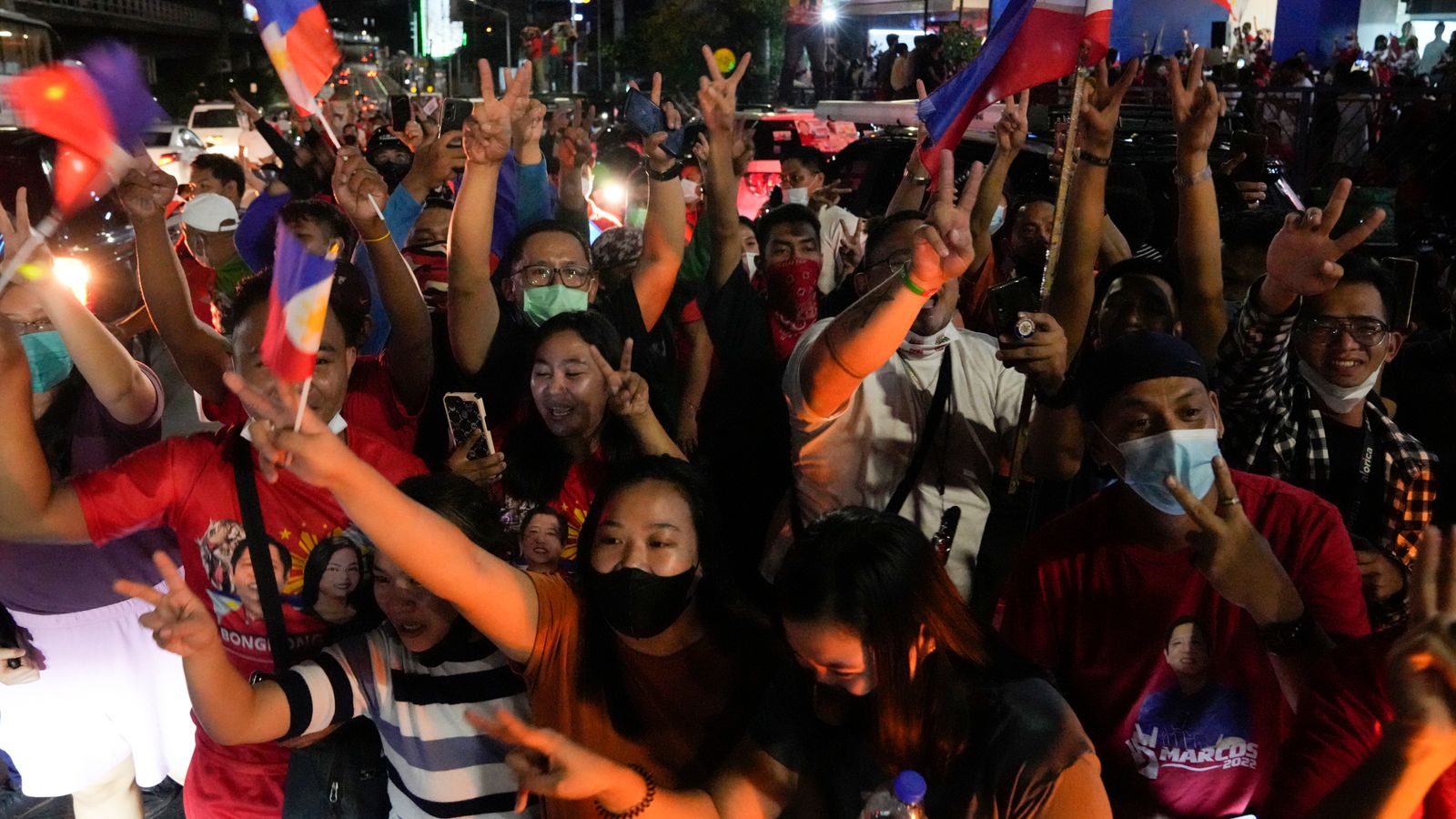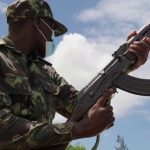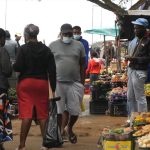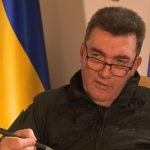The son of late Philippine dictator Ferdinand Marcos has triumphed in the country’s presidential election.
It is the first win by a majority in the nation since a 1986 revolution topped his late father’s two-decade dictatorship.
Ferdinand Marcos Jnr beat off challenges from both a human rights lawyer and the current vice president Leni Robredo.
An unofficial tally showed Marcos, popularly known as BongBong, had surpassed the 27.5 million votes needed for a
majority, setting the stage for a once unthinkable return to rule of the Marcos family, 36 years after its humiliating
retreat into exile during a “people power” uprising.
And on Monday night, according to the unofficial Commission on Elections (COMELEC) tally, Marcos Jr had polled 29.9 million votes, double that of Leni Robredo, the vice president, with 93.8% of the eligible ballots counted.
“I hope you won’t get tired of trusting us,” Marcos told supporters in remarks streamed on Facebook, a platform at the core of his political strategy.
“We have plenty of things to do,” he said, adding “an endeavour as large as this does not involve one person.”
Philippines elections: Dictator Ferdinand Marcos’s son takes huge lead over rival in unofficial vote count
Tropical Storm Megi kills at least 25 people as Philippines hit by floods and landslides
Typhoon Rai: At least 375 dead after powerful storm hit Philippines as governor pleads for more aid
Despite its fall from grace, the Marcos family returned from exile in the 1990s and has remained a powerful force in politics, retaining its influence with vast wealth and far-reaching connections.
Mr Marcos Jr has refused to acknowledge human rights abuses and the unexplained wealth accrued by his family during his father’s dictatorship and throughout his campaign and has appealed for national unity.
Previously, he has served as a governor, congressman and senator, his sister, Imee, is currently a senator and his mother Imelda, the influential power-broker and widow of the late dictator, served four terms in congress.
Marcos Jr’s son Ferdinand Alexander is also tipped to win a seat in congress.
Please use Chrome browser for a more accessible video player
The presidential election winner will take office on 30 June for a single, six-year term as leader of a south-east Asian nation hit hard by two years of COVID-19 outbreaks and lockdowns.
Even more challenging problems include deeper poverty and unemployment and decades-long Muslim and communist insurgencies.
The new president is also likely to hear demands to prosecute outgoing President Rodrigo Duterte for thousands of killings during his anti-drug crackdown – deaths already under investigation by the International Criminal Court.
Human rights’ fears
Mr Duterte’s daughter, southern Davao city mayor Sara Duterte, is Mr Marcos Jnr’s vice presidential running mate – an alliance of two descendants of two authoritarian leaders whose ethos concerns human rights groups.
The tie-up has combined the voting power of their separate northern and southern political strongholds, boosting their chances, but compounding the fears of rights’ activists.
In the unofficial count from the Commission on Elections late on Monday, Sara Duterte also had a strong lead in the vice presidential election, with more than 23.3 million votes.
Long queues
Officials said the election was relatively peaceful despite pockets of violence in the country’s volatile south.
Thousands of police and military personnel were deployed to secure election precincts, especially in rural regions with a history of violent political rivalries.
Filipinos stood in long queues to cast their ballots, with the start of voting delayed by a few hours in a few areas due to malfunctioning vote machines, power cuts, bad weather and other problems.
Eight others were in the presidential race, including former boxing star Manny Pacquiao, Manila mayor Isko Moreno and former national police chief Panfilo Lacson.






















